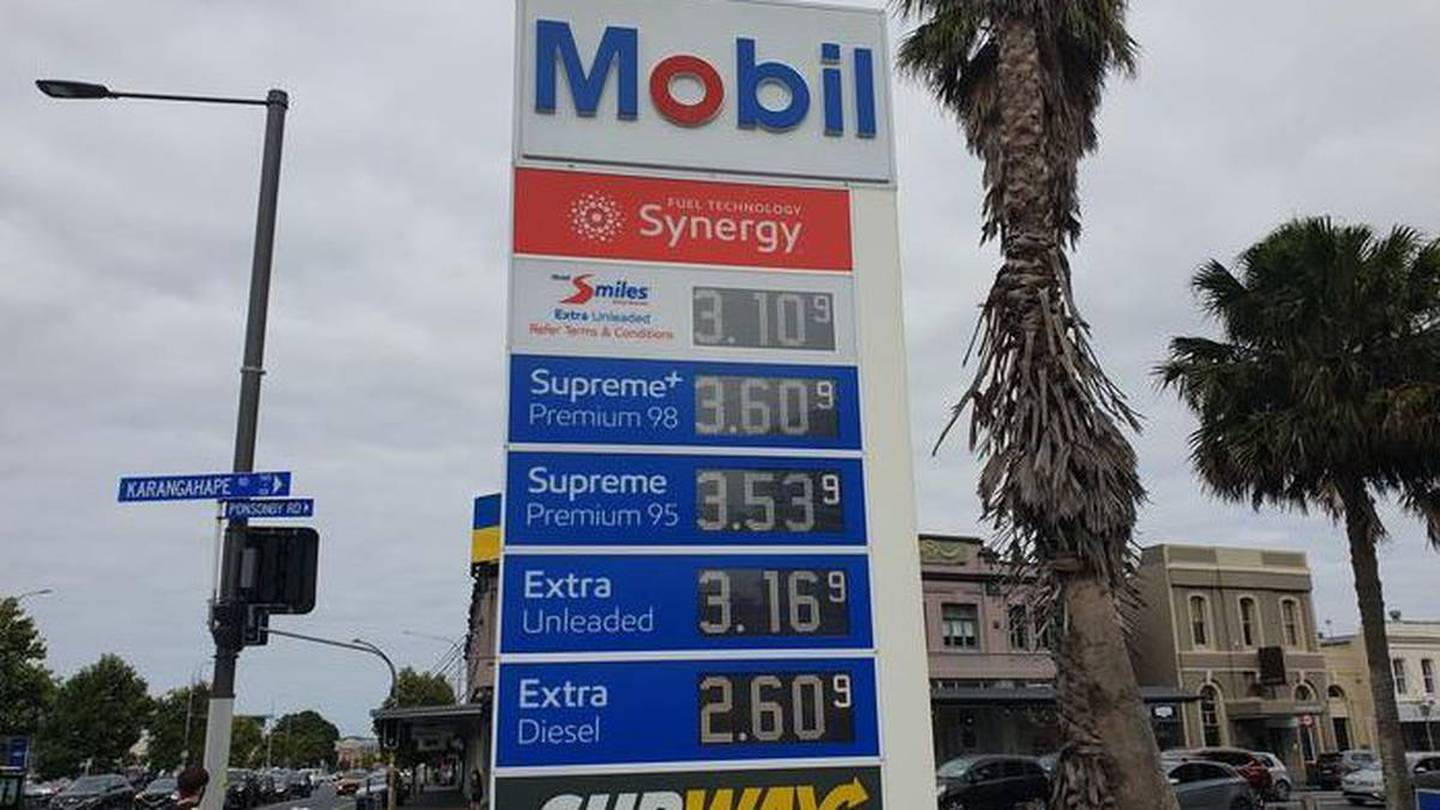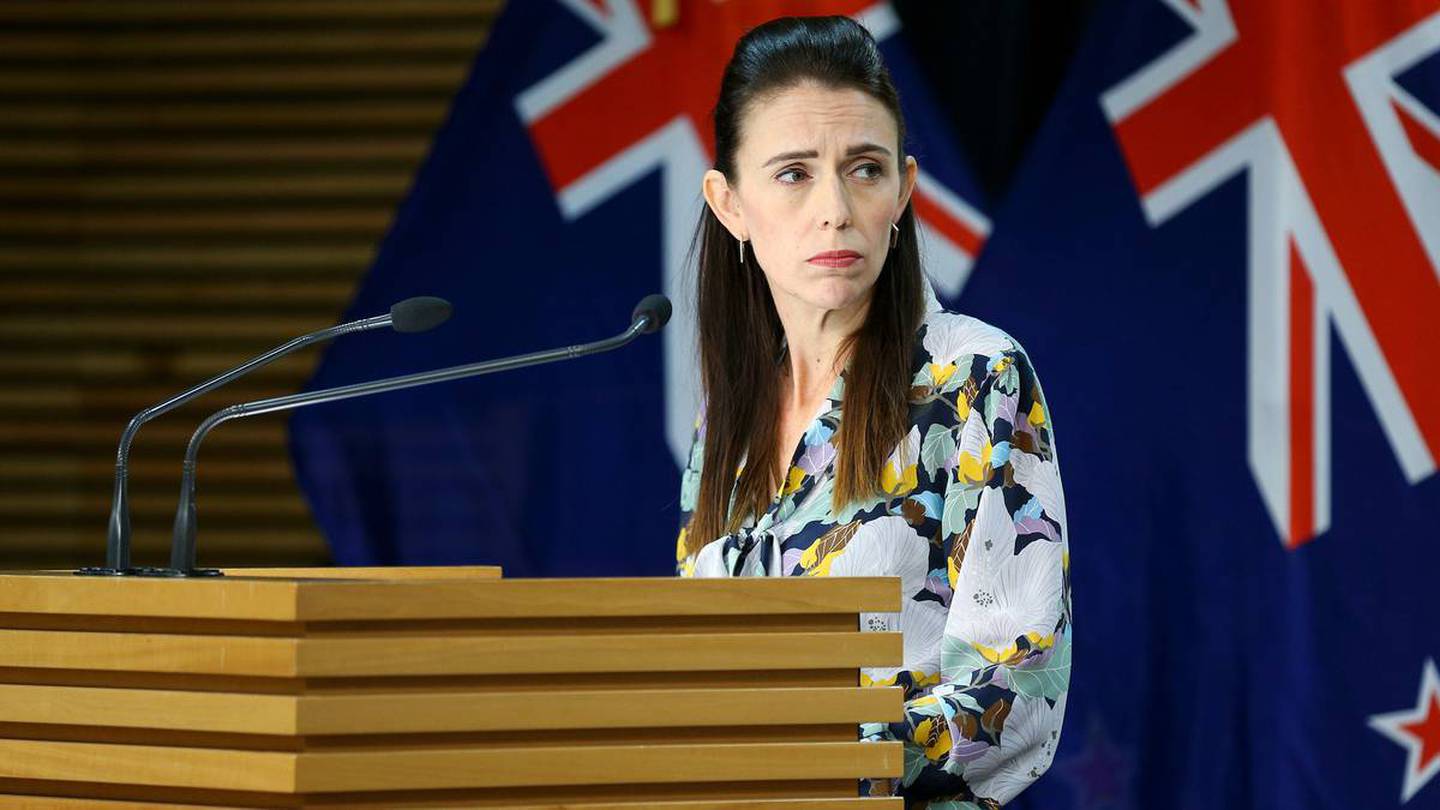KEY POINTS:
• Fuel excise taxes and road user charges slashed by 25c a litre from midnight
• Govt says lower fuel prices will follow 'within hours'
• All public transport fares will also be halved from April 1
• PM says Ukraine invasion highlights 'global energy crisis'
Kiwi motorists will get some relief from soaring petrol prices, with the Government slashing fuel excise duties and road user charges by 25c a litre each from midnight.
But one major fuel company has jumped the gun, announcing it will impose the price reduction immediately.
Mobil said it would not wait until midnight, instead reducing prices across all petrol grades by the same amount straight away.
Mobil lead country manager Andrew McNaught said the company wanted to give "some immediate relief" to motorists as they drove home tonight.
"The cost of living has been having a significant impact on many households, and we want to do our part to help reduce those impacts, which is why we are dropping our prices immediately," he said.
Prime Minister Jacinda Ardern described the current situation as a "global energy crisis" after Russia's invasion of Ukraine.
Cabinet had decided today to reduce fuel excise duties and road user charges by 25c a litre each, for the next three months. The change takes effect from 11.59pm tonight.
All public transport fares will also be halved from April 1.
"We are in a wicked perfect storm," Ardern told reporters at her post-Cabinet press conference.
"We expect continued volatility, and this affects everything."
However, the Government says it is "too complicated" to remove GST from fuel prices.
Finance Minister Grant Robertson said tinkering with GST would be increasingly complicated.
"It's a massive administrative job to play with GST."
Ardern said the changes announced today were quickly achievable.
This year's Budget in May would address longer-term issues around energy independence and a move away from fossil fuels.
Robertson said Cabinet wanted to support people through the global energy shock.
Fuel price changes 'within hours'
The reduction in fuel excise duties would take effect from 11.59pm tonight.
"We cannot influence the global oil price," he added, but local fuel excises could be amended.
"It means that we can take this action within hours," Robertson said.
"For most taxes, it ordinarily took months to affect any change."

The price of petrol has surged past $3 a litre.
The Russian invasion added to existing global inflationary pressures, Robertson said.
"On road user charges, it is a more complex picture."
Reduced public transport fares should help cushion the blow some families faced from surging living costs, he said.
A vast array of different road user charges complicated attempts to make changes in that area.
Fuel excises went directly into a transport fund which was "always well over-subscribed" due to decades of underinvestment in roads and related infrastructure.
Robertson said today's fuel excise cuts and transport subsidies were affordable.
The Treasury estimated the reduced fuel excises would cost about $350 million.
Money would be reprioritised from a Covid-19 fund to make up the shortfall.
The wind-down of managed isolation facilities had freed up some public money.
Energy and Resources Minister Megan Woods said she spoke with fuel company chief executives today, and most were willing to take steps to reduce prices for consumers from tonight.
Fuel industry profits would be monitored, and data made publicly available.
"There are options to pursue more data disclosure," she added.
Woods said she was working with other energy ministers worldwide to monitor the energy crisis and take possible remedial action.
Robertson said he wouldn't want to presume what a normal energy price was, but the
latest steps from Cabinet should help stabilise prices.
"There is no issue with physical supply. It's all about price in New Zealand," Woods added.
Auckland regional fuel tax remains, Mayor's reaction
Auckland Mayor Phil Goff said he recognised the pressure rapidly rising fuel prices had put on the budget of many Aucklanders, but has no plans to reduce the 11.5c a litre regional fuel tax.
"Suspending the regional fuel tax in current circumstances would worsen the crisis Auckland Transport faces with the loss of hundreds of millions of dollars in public transport fares because of Covid, while construction costs for new infrastructure and operating costs are rising rapidly.
"Any reduction in revenue in these circumstances would result in suspension of projects like the Eastern Busway and would not only delay their delivery, but also result in ultimately much higher costs," he said.
Goff said the loss of revenue would mean less ability to borrow within debt to revenue constraints which means that investment in vital infrastructure would be cut by many times the reduction in revenue from the regional fuel tax.
That is because the council receives subsidies from the NZ Transport Agency and other sources to top up projects funded through the regional fuel tax.
Goff welcomed the short-term relief from fuel prices and the decision to provide subsidies to halve public transport fares for three months.
He said it would help people avoid higher fuel costs, look at public transport as an alternative way to travel with cheaper fares, and help a faster return to public transport after the sharp fall in patronage caused by the pandemic.
It would also offset the funding problems this has in turn caused for Auckland Transport and Auckland Council.
PM: No magic solution on global fuel prices
Ardern said an "economic crisis" was underway and it was part of her job to get New Zealand through that.
The Government did not expect the war, but it was doing what it could to respond to the economic impacts of Russia's invasion.
Ardern said no magic solution existed, but just as the Government faced the Covid-19 challenge, it would now tackle the energy crisis.
She said new measures would be activated from April 1 to lift the income of more than 300,00 families by $20 a week.
On May 1, more than 1 million people would receive the winter energy payment.

Just a week ago Prime Minister Jacinda Ardern refused to concede NZ was facing a cost of living 'crisis'.
Ardern said the main focus was how to give people more energy security over the long-term.
Making public transport more affordable was a key component of this, the Prime Minister said.
The ministers said almost 60 per cent of families would get an increase to Working for Families of on average $20 a week.
Superannuation would increase $52 per fortnight for a single person and $80 for a couple, and benefits would increase up to a further $35 a week.
The winter energy payment from May would provide $31.82 a week for couples and people with dependent children, for a total of about $700 over winter.
Chch mosque shootings anniversary
Tomorrow is the third anniversary of the Christchurch mosque shootings. Ardern was asked if New Zealand was a safer place.
She said gun laws had been changed, and reviews into national security made since the terrorist attacks.
On whether more work was needed to tackle Islamophobia, she replied: "There is, by everyone."
She added: "We all have a role to play."
National on attack over cost of living
The cost of living and surging petrol prices are in the spotlight now, with fuel taxes and the economy providing fodder for the Government's political rivals.
The National Party has been pushing hard on living costs, and appears to have been rewarded in the polls.
National's leader Christopher Luxon learned on Thursday his party had overtaken Labour in the latest 1News-Kantar poll.
He has for weeks been arguing Government policies must shoulder much blame for what his party called a cost-of-living crisis.
Earlier today, Ardern finally acknowledged a major cost of living problem and indicated the Government could announce immediate tax relief at the petrol pump.
Russia's invasion of Ukraine has driven some of the jump in petrol prices, but local fuel taxes are a major topic of debate now.
The cost of a litre of petrol has surged past $3.
For each litre, about 70c went to Waka Kotahi NZ Transport Agency to pay for maintaining roads, building new roads and subsidising public transport.

Petrol prices at one of Auckland's Z stations. Photo / Brett Phibbs
Apart from 70.024 cents going to the National Land Transport Fund, 6c went to the ACC Motor Vehicle Account, and a total of 1.26c went to a local authority's fuel tax and petroleum or engine fuels monitoring levy.
Aucklanders pay an additional regional fuel tax.
In 2018, the Government introduced another tax on fuel sold in Auckland of 10c a litre, with GST taking the figure to 11.5c, to help Auckland Council fund transport projects in the city.
But according to council data, as of December 2021 less than half of the $515 million of that tax revenue was actually spent, leaving the council with a $285m tax surplus.
"Motorists are charged GST on the fuel excise, which amounts to a tax on a tax," the AA said on its website.
It said GST on excise should be removed to help relieve the financial burden on New Zealanders.
Auckland Business Chamber chief executive Michael Barnett also called for immediate Government action on fuel taxes.
"Doing something now to mitigate the pressure on families would be easy for them and would send a signal of understanding," he said.
Last week, motorists endured queues of up to 1km – and ran at least one petrol station dry – after a fuel company boss warned of imminent and massive price hikes.
Today, the Gaspy online app listed multiple stations selling 91 octane for more than $3.30 a litre.
Take your Radio, Podcasts and Music with you









